Human Technical Ingenuiry in Space
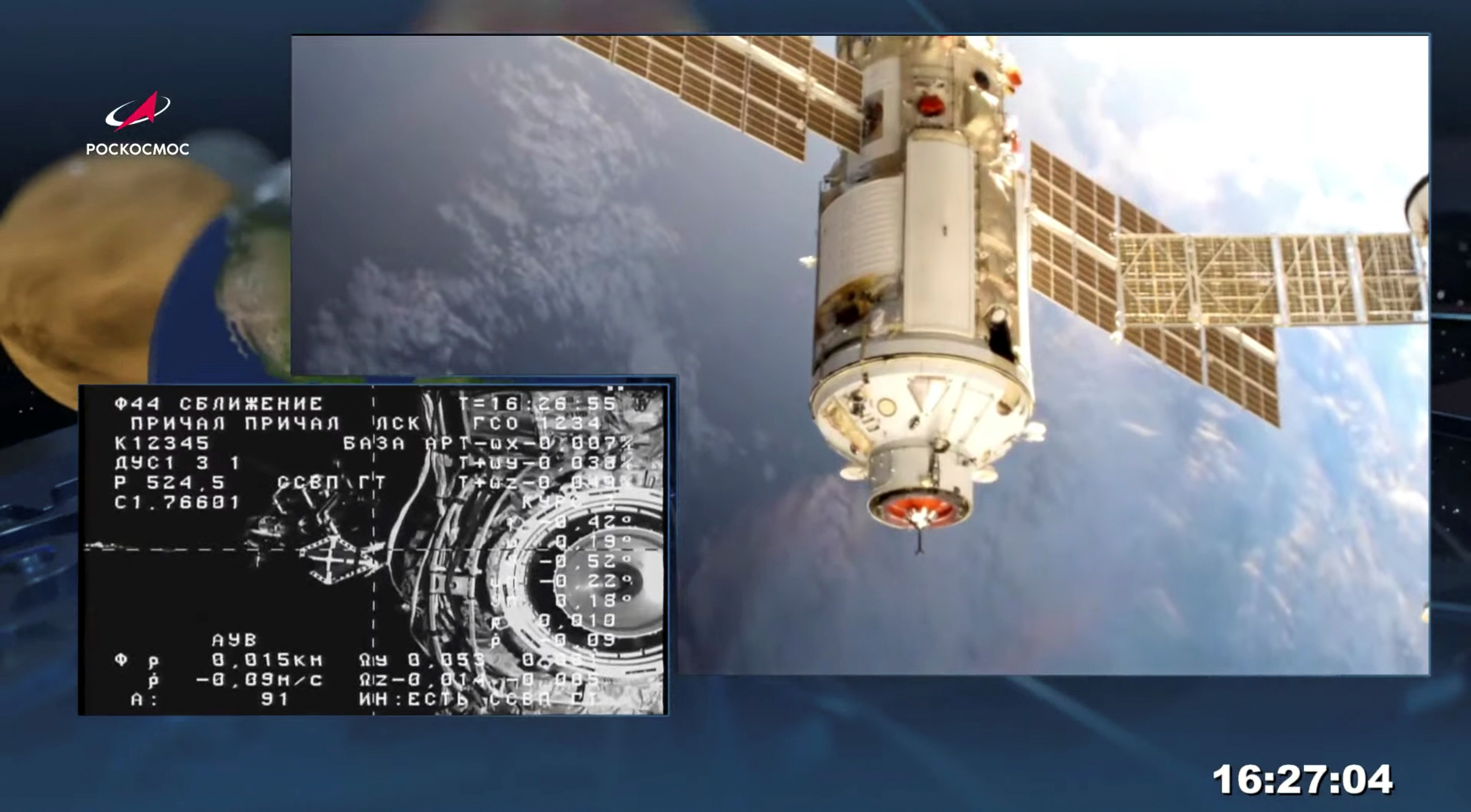 |
| The Nauka (Science) Multipurpose Laboratory Module is seen during its docking to the International Space Station (ISS) on July 29, 2021 in this still image taken from video. Roscosmos/Handout via REUTERS |
"The process of transferring the Nauka module from flight mode to 'docked with ISS' mode is underway.""Work is being carried out on the emaining fuel in the module.""According to telemetry data and reports from the ISS crew, the on-board systems of the station and the Nauka module are operating normally."Roscosmos
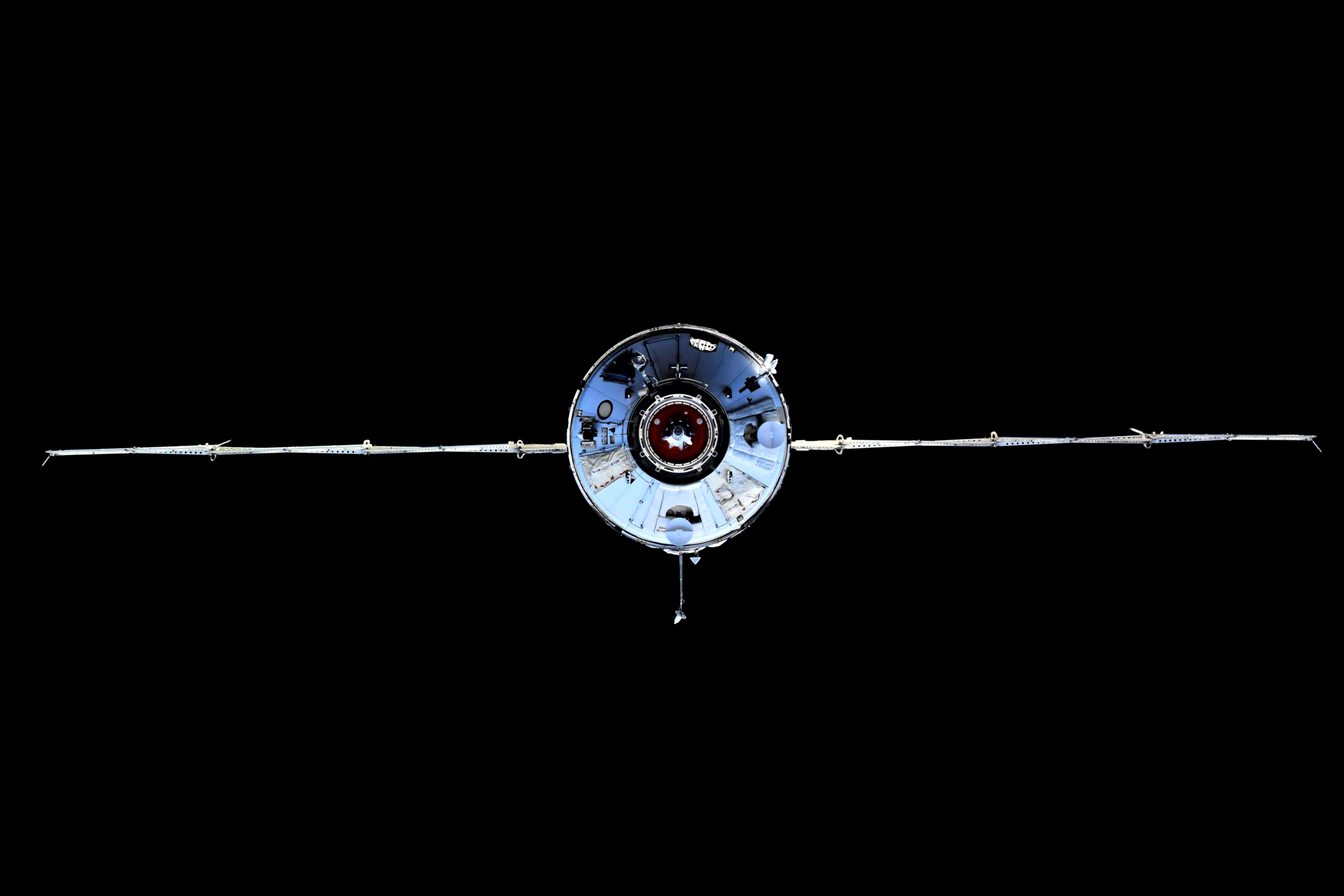 |
| The Nauka (Science) Multipurpose Laboratory Module is seen during its docking to the International Space Station (ISS) on July 29, 2021. Oleg Novitskiy/Roscosmos/Handout via REUTERS |
According to RIA news agency, Russian cosmonauts aboard the International Space Station on July 29, informed mission control in Moscow that a problem had surfaced with the new Russian Nauka module. It had docked at the station a few hours before the communication. But then something happened that should not have. There was an 'unplanned' restart of Nauka's engines, according to a translation of the conversations between the cosmonauts in space and their headquarters on Earth.
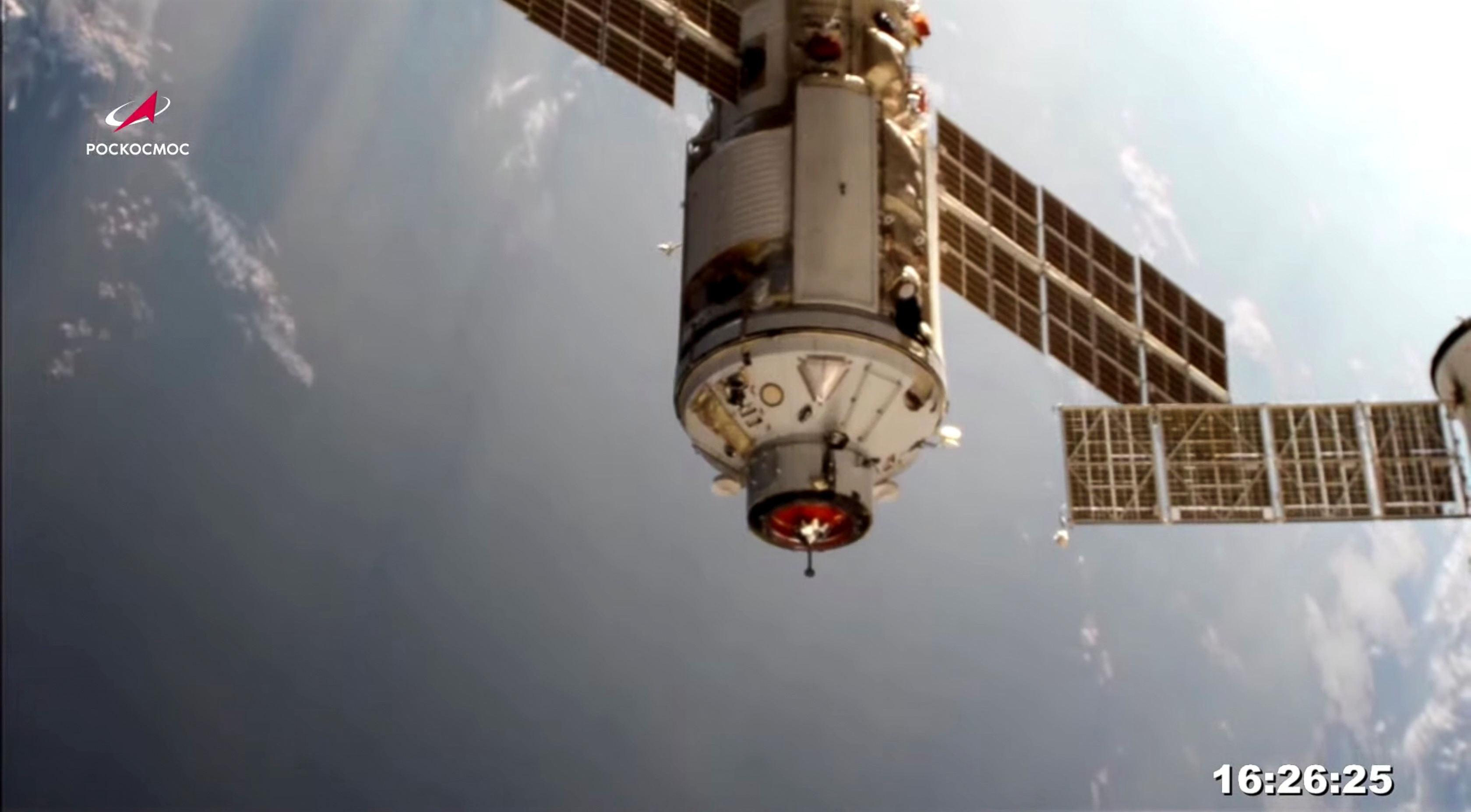 |
| The Nauka (Science) Multipurpose Laboratory Module is seen during its docking to the International Space Station (ISS) on July 29, 2021 in this still image taken from video. Roscosmos/Handout via REUTERS |
A NASA official assured that no risk was posed to the seven astronauts aboard the space station. The Nauka engines responded to efforts to switch them to the off position. A surprise occurrence, one that doubtless caused no end of consternation. But Russian cosmonauts are known for their independent agency in responding to unusual situations. And with a little bit of encouragement and assistance from their headquarters it appears the situation was well in hand.
But the re-started engines in the newly-docked module did impact somewhat on the position of the International Space Station. Houston-based NASA informed the astronauts that there was a change in the position of the ISS in space as a result of the unplanned Nauka engines restart. The solution to which once those engines were shut off, was to activate the engines of another space station module to correct and reposition the ISS. The incident was described as a "tug of war" between the two modules.
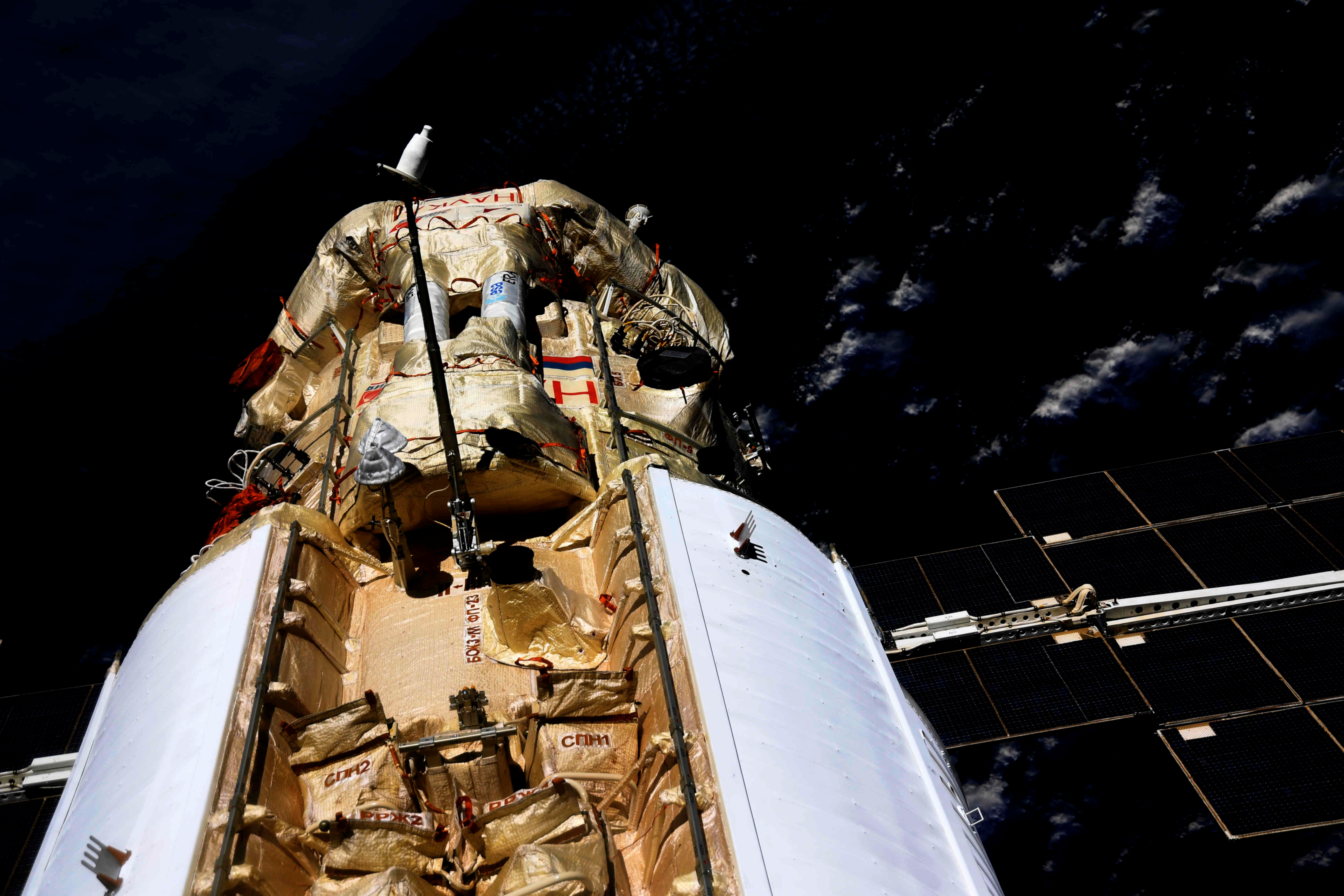 |
| The Nauka (Science) Multipurpose Laboratory Module is seen docked to the International Space Station (ISS) on July 29, 2021. Oleg Novitskiy/Roscosmos/Handout via REUTERS |
The Russian Roscosmos space agency described the issue as having been caused by the Nauka module
interacting with residual fuel in the spacecraft after Russia upgraded its capabilities on the ISS with its new Nauka module purposing to serve as a research laboratory, a storage unit and airlock. The docking was successfully completed following the journey from Earth which had its own tense moments. Had the situation gotten out of hand, evacuation could have been achieved using the still-docked SpaceX module.
The Russian space agency Roscosmos played a live broadcast which showed the module docking with the ISS a few minutes later than had been scheduled. The module is a multipurpose laboratory and its name, Nauka is 'science', in Russian.
Following its launch from Kazakhstan's Baikonur Cosmodrome, a series of glitches afflicted the module, raising concerns whether the docking process would go well. And in the final analysis, its engineering and design proved equal to the task for which it had been designed.
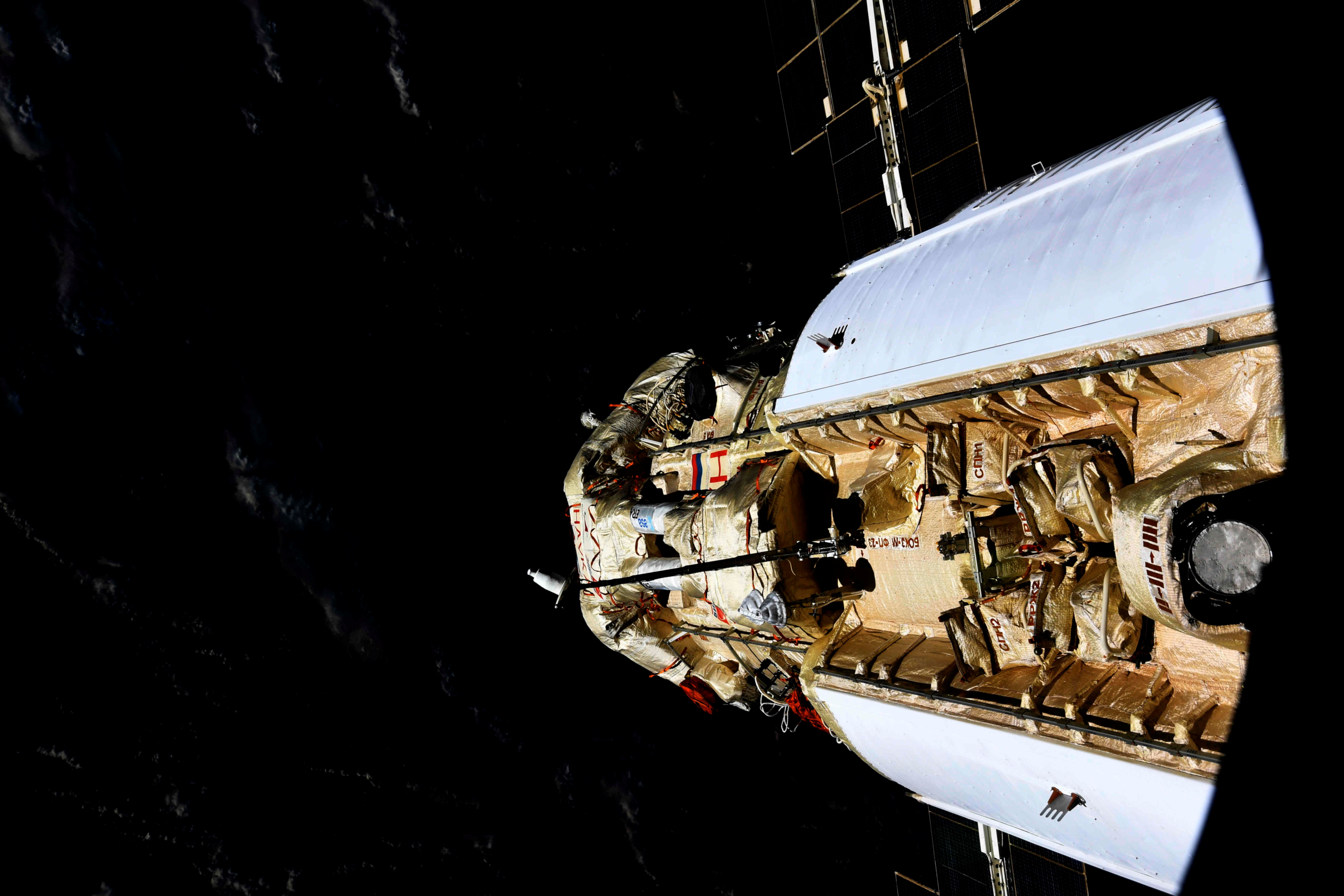 |
| The Nauka (Science) Multipurpose Laboratory Module is seen docked to the International Space Station (ISS) on July 29, 2021. Oleg Novitskiy/Roscosmos/Handout via REUTERS |
Labels: Correction, Docking, Engine Restarting, International Space Station, Russian Nauka Module

<< Home